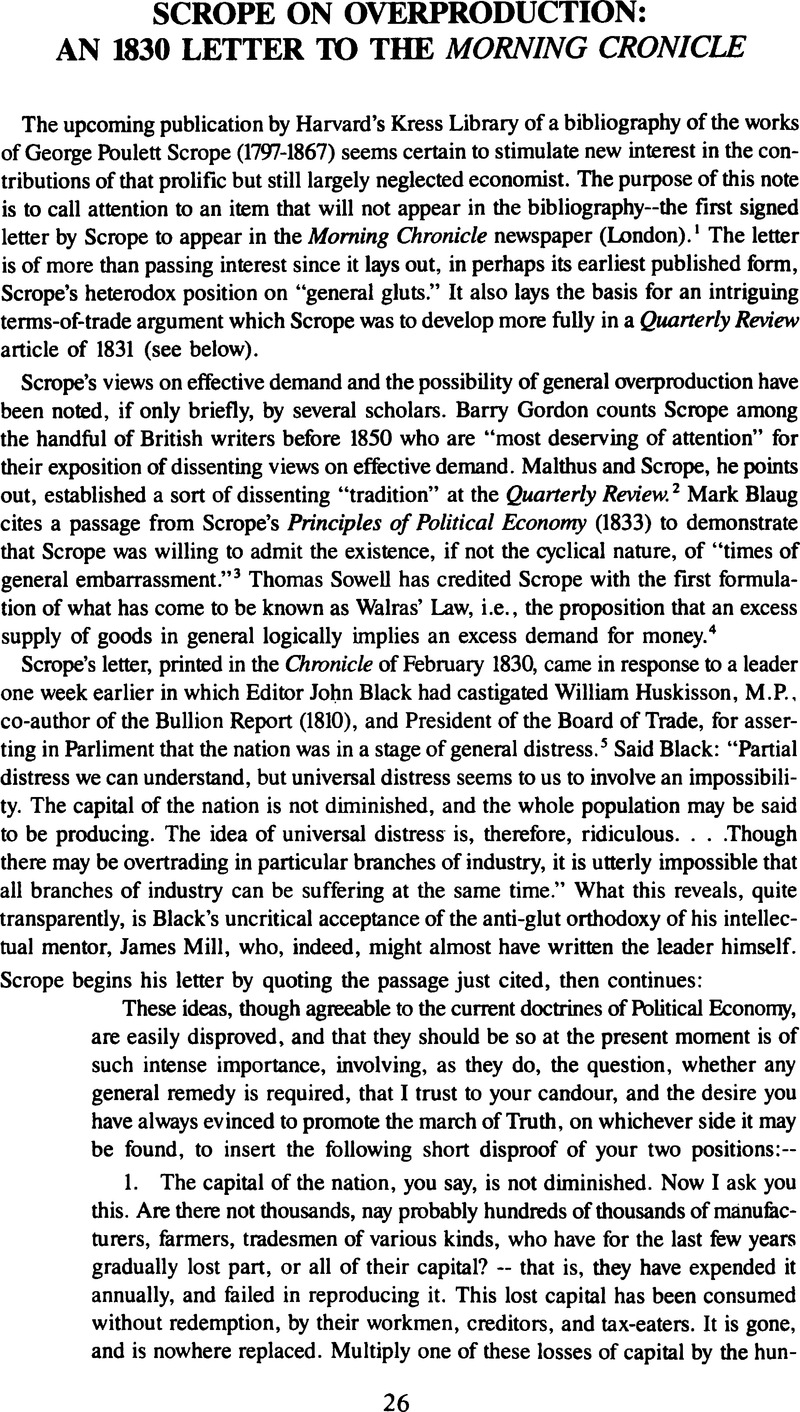No CrossRef data available.
Published online by Cambridge University Press: 18 September 2015

1 Paul Sturges, compiler of the bibliography, has explained in correspondence of 7 June 1984 that attempting to track down all of Scrope's newspaper contributions would have been a “needle in the haystack job.” For that reason he has excluded all such items unless they were subsequently published in pamphlet form.
2 Gordon, , “Say's Law, Effective Demand, and the Contemporary British Periodicals, 1820-1850,” Economica 32 (1965), 441-42, 445–46CrossRefGoogle Scholar. Gordon specifically cites Scrope's Quarterly Review articles of January and February, 1831.
3 Blaug, , Richardian Economics: A Historical Study (Westport, Conn.: Greenwood Press, 1976), 98Google Scholar.
4 Sowell, , Say's Law: An Historical Analysis (Princeton University Press, 1972), 34, 138–39Google Scholar. See also Sowell, , Classical Economics Reconsidered (Princeton University Press, 1974), 50, 61Google Scholar.
5 For more on Huskisson's political-economic views, see Gordon, Barry, Economic Doctrine and Tory Liberalism, 1824-1830 (London, 1979)CrossRefGoogle Scholar, passim, and Tucker, G. L. S., The Political Economy of William Huskisson, University of Newcastle, Department of Economics, Occasional Paper No. 46 (1978)Google Scholar. For more on John Black, see Gilbert, Geoffrey, “The Morning Chronicle, Poor Laws, and Political Economy,” forthcoming in History of Political Economy (1985)Google Scholar.
6 Scrope's reformist monetary views were already evident in two 1830 tracts: The Currency Question freed from Mystery and On Credit Currency.